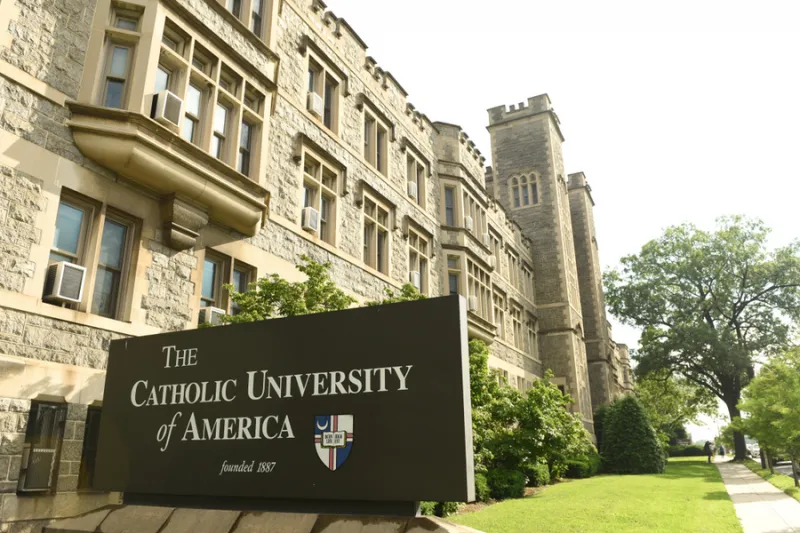
Washington D.C., Jul 14, 2021 / 09:01 am (CNA).
The Catholic University of America announced this week that it has received a $64.1 million research grant from NASA to fund a cooperative agreement with other Washington-area universities.
In a July 12 press release, the school said the partnership includes its own Institute for Astrophysics and Computational Sciences, as well as five other local partners: University of Maryland Baltimore County, University of Maryland College Park, George Mason University, Howard University, and Universities Space Research Association.
The project–the Partnership for Heliophysics and Space Environment Research (PHaSER)–will support the scientific and technical projects at NASA Goddard Space Flight Center’s Heliophysics Science Division.
Bob Robinson, director of PHaSER and research professor of physics at CUA, said the division’s mission “is to study the transport of energy, in the form of particles and radiation from the sun through interplanetary space and its effects on Earth’s atmosphere and ionosphere.”
The school said PHaSER will strengthen existing partnerships and provide opportunities for early-career scientists, including programs aimed at underrepresented groups.
Robinson said cooperative agreements like PHaSER “help fulfill the University’s mission in education, providing opportunities for CatholicU students and faculty to take advantage of the expertise and resources that we have at NASA Goddard.”
“I’m excited to see that connection continue and strengthen under the new agreement,” he added.
In a statement, University Provost Aaron Dominguez said, “When executed, this becomes the largest single research grant in the history of The Catholic University of America.”
When combined with another NASA agreement, Dominguez said CUA’s NASA-funded projects “total just over $90 million over the next five years.”
If you value the news and views Catholic World Report provides, please consider donating to support our efforts. Your contribution will help us continue to make CWR available to all readers worldwide for free, without a subscription. Thank you for your generosity!
Click here for more information on donating to CWR. Click here to sign up for our newsletter.




Leave a Reply